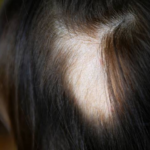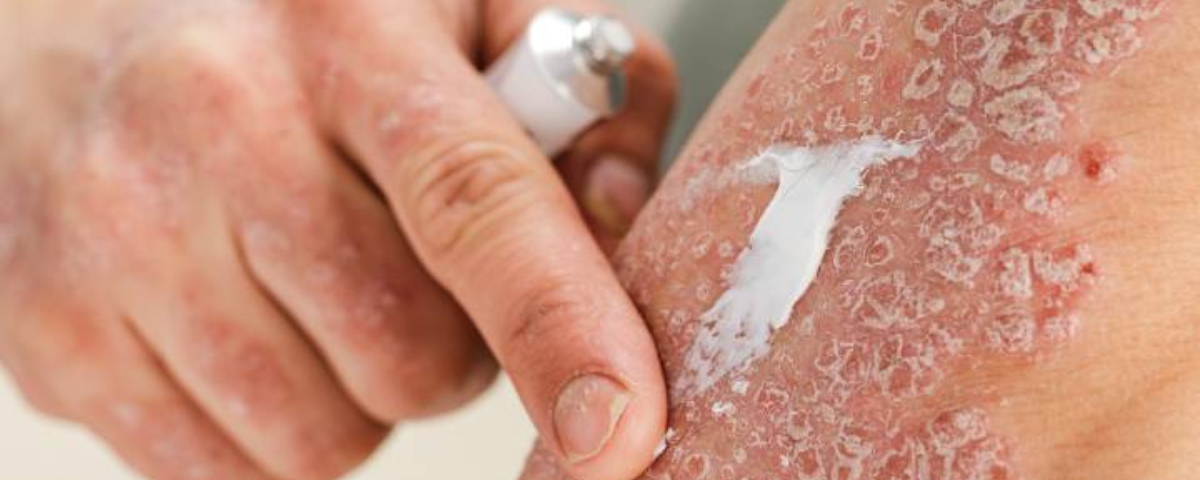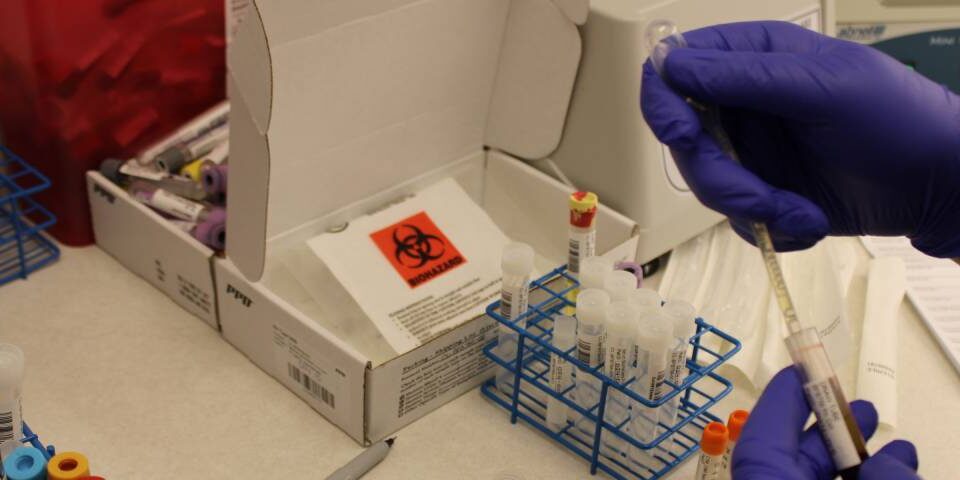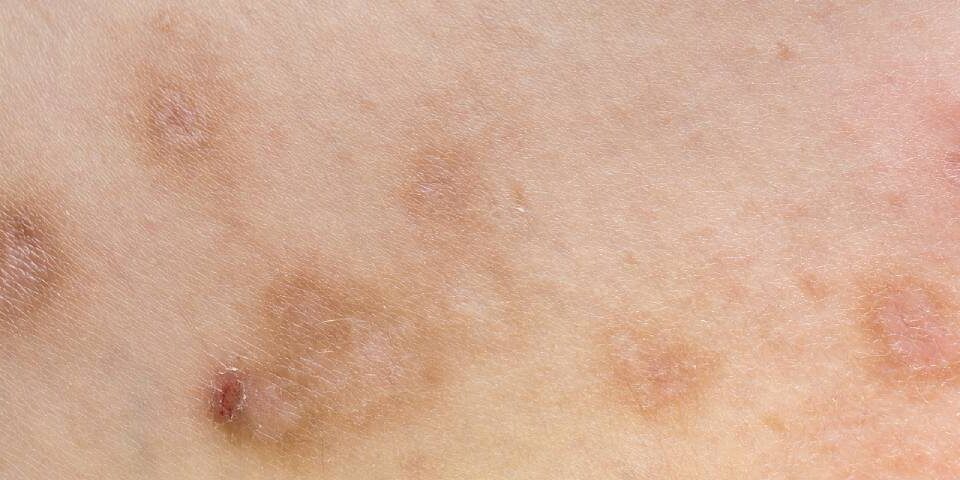
Psoriasis Explained: From Symptoms to Solutions
September 5, 2024
Beyond Hair Loss: New Clinical Trials for Alopecia Areata Treatments
November 5, 2024Itchy, dry, bumpy, and miserable… eczema damages the protective skin barrier of about 31.6 million Americans (more than 10 percent of the population)! It can feel like a never-ending, cracked skin puzzle where the pieces don’t always fit, and the itching and irritation persist. But what if we could crack the code and solve the eczema puzzle with more effective, longer-lasting treatments for eczema that will finally stop the itching and irritation?
While several helpful eczema treatments are available today, they all have limitations that still fall short of the long-term relief patients need for a better quality of life. This is why Apex Clinical Research Center is inviting people to participate in groundbreaking eczema clinical trials that are studying ways to uncover better, longer-lasting eczema relief solutions.
What is Eczema (Atopic Dermatitis)?
Eczema is the common term for atopic dermatitis, which is a chronic, long-lasting, non-contagious, inflammatory skin condition that often first appears in early childhood, but can manifest at any age. It is characterized by itchy, dry, red patches that often feel bumpy and cracked. Eczema weakens your skin’s protective barrier that keeps outside elements out and critical moisture in. Because the skin's protective barrier is weaker for people with childhood and adult eczema, their skin is more easily irritated and vulnerable to environmental factors and infections.
Many people with atopic dermatitis also suffer or develop conditions like environmental allergies, asthma, and food allergies. In fact, atopic dermatitis flare-ups can be connected with exposure to allergens, stress, and other triggers. CDC statistics indicate that adult atopic dermatitis afflicts more than 7 percent of American adults, many of whom also suffer from various allergic issues. Childhood-onset and adult atopic dermatitis afflicts people with all skin tones: 13 percent of people with Native American, Asian, or Pacific Islander heritage were likely to suffer from atopic dermatitis, while 11 percent of Caucasians and 10 percent of those with African American heritage were diagnosed.
Do You Have Eczema? Recognize the Signs
There are a host of different skin conditions that can mimic eczema. Also, eczema can manifest a little differently in people with different skin tones, so it’s important to have any itchy, scaly rash evaluated and diagnosed by your dermatology provider as soon as possible. The sooner you receive a clear diagnosis, the sooner you can find relief with one of the existing treatments for eczema, or you may be eligible to participate in one of our eczema clinical trials. Understanding your symptoms and what causes the irritation is important to finding relief:
Common Eczema Symptoms
- Eczema can show up anywhere on the body but is particularly common on the hands, elbows, knees, ankles, neck, feet, and face (especially the lips, ears, or cheeks).
- Persistent itchy, dry patches that won’t go away
- Bumpy, itchy, cracked, swollen rashes
- Rough, scaly, red, thickened skin texture
- Symptoms may flare up or subside according to triggers or lack of triggers. For example, an eczema rash may flare up during weather changes, stressful times, or if you are exposed to any allergens to which you are sensitive.
- For people with darker skin tones, an eczema flare-up may look more purple, gray, or brown. People with lighter skin tones may see more pink, red, or purple rashes.
Who’s at Risk for Eczema?
About 15 percent of children in the U.S. have been diagnosed, while about 7.3 percent of adults have been diagnosed with eczema. Common risk factors include a family history of eczema, allergies, and/or asthma.
How is Eczema Diagnosed?
There is a clinical process to receive an eczema diagnosis and to start with any applicable prescription eczema treatments:
- A physical examination with your dermatologist: Your dermatology provider will examine your skin and evaluate your reports of itchiness and the distribution of any bumps, inflammation, cracks, scales, and dry patches.
- Medical history: Your dermatology provider will discuss other applicable factors of your medical and family history, such as allergies, asthma, and if any other family members have an eczema diagnosis.
- Allergy testing: Because allergies and eczema are often linked, patch testing or blood tests may be recommended to discover allergens that trigger flare-ups, so you can avoid them.
When to See a Doctor
Anytime you struggle with a condition that causes persistent, severe symptoms diminishing your quality of life, comfort, or ability to concentrate or sleep, it’s time to schedule an appointment with your dermatologist. It is especially important in the case of children who struggle to control the scratching impulse when their skin itches. Seek help because persistent scratching can cause skin infections.
Understanding Eczema (Atopic Dermatitis): What Makes It So Challenging?
As common as atopic dermatitis is, it’s still a challenge to treat effectively with the treatments that currently exist, which is why Apex Clinical Research Center is actively pursuing more intensive research into the condition and running atopic dermatitis clinical trials to discover more effective, long-term treatments for childhood and adult atopic dermatitis.
One of the things that makes atopic dermatitis a challenge is that there is more than just one kind. In addition to the most common version (atopic dermatitis), there are others. And it is possible to suffer from more than one variety at the same time, which can increase the complexity of finding an appropriate treatment regimen that provides the necessary relief.
Types of Eczema
All seven types of eczema are inflammatory, chronic, and itchy, but manifest in different ways:
- Atopic Dermatitis — This is the most common form of eczema, causing itchy, inflamed, dry skin. It’s commonly diagnosed in children but can manifest at any stage of life.
- Contact Dermatitis — This type of eczema manifests as an itchy rash or skin irritation in response to contact with an environmental trigger such as pollen, a plant, animal dander, fragrances in skincare products, etc. It’s also sometimes called “allergic contact dermatitis” for that reason.
- Dyshidrotic Eczema — This unpleasant variety is characterized by burning rashes and often accompanied by blisters.
- Neurodermatitis — Sometimes called “discoid eczema”, it causes small, itchy, scaly patches of skin.
- Nummular Eczema — This type of eczema causes small, round lesions to form, especially on the arms and legs. However, the lesions can appear anywhere on the body.
- Seborrheic Dermatitis — An inflammatory, localized type of dermatitis that develops on the scalp.
- Stasis Dermatitis — This kind of eczema develops as discoloration of the skin on the legs and can look like varicose veins.
The Root Causes of Eczema
Eczema has a complex tangle of potential causes that science is still trying to puzzle out, but so far, it’s clear that there is a strong genetic component, which is why it often runs in families. Along with the genetic aspects, eczema is considered an inflammatory immune system dysfunction. This seems to be why eczema is often linked with allergies and asthma, which are also considered immune system malfunctions. Newer eczema treatments focus directly on these immune triggers to find ways to individualize treatments, making them more effective.
Eczema Triggers and Challenges
If you struggle with eczema, discovering your flare-up triggers is an important aspect of avoiding problems. But often, it’s a struggle to avoid the triggers, which can be unpredictable in the course of a normal day. Everything may be going fine, but suddenly, your eczema flares up, and you don’t know why. It’s frustrating. Work with your dermatology provider to find out what worsens your symptoms. The following triggers are often connected with eczema flare-ups:
- Cosmetics
- Food allergens
- Environmental allergens
- Stress
- Fragrances
- Weather changes
- Temperature changes
- Clothing
- Detergents
- Soaps
- Viral infections
Our trusted partner, Apex Skin, an extensive dermatology practice that has helped thousands of people manage their eczema symptoms, recommends avoiding skincare products with fragrances or other aggravating ingredients. They also stress the importance of diligently moisturizing after bathing to lock in moisture and protect the skin’s barrier from irritants. They also added it’s important to avoid any known triggers as much as possible and to follow your dermatologist’s recommended eczema treatments closely.
Common Treatments for Eczema
There are several current eczema treatments, both over-the-counter and prescriptions, which may provide some temporary, yet welcome relief to the itching and inflammation. Over-the-counter and home treatments for eczema include:
- Moisturizers designed for sensitive skin (without fragrances or other irritants). Apply these after every bath or shower, and after handwashing.
- Use fragrance-free, gentle, hypoallergenic cleansers and other skincare products recommended by your dermatologist.
If home and OTC remedies fail to provide relief for atopic dermatitis, prescription treatments may include the following:
- Topical corticosteroids
- Antihistamines (to control your body’s response to allergic triggers)
- Topical calcineurin inhibitors
- Systemic immunomodulating oral medications
- Biologics
- Phototherapy (careful, clinically-controlled UV light exposure)
Cracking the Code: When Current Eczema Treatments Aren’t Enough
If you are still itching and cracking and miserable after avoiding triggers, diligently moisturizing, and using any prescription medications you've tried, please consider signing up for our eczema clinical trials as we try to crack the code to provide better eczema relief for our patients.
While all of the above eczema treatments work in some measure to provide temporary relief of the itching, inflammation, cracking, and dryness, they don’t always provide the long-term solutions that our patients need for an improved quality of life. This is especially true for our patients with moderate to severe eczema.
Furthermore, some of the systemic and steroid treatments can have unwanted side effects. Additionally, while some of these treatments may provide good symptom control for a while, many patients experience something called “treatment resistance” in which prolonged use of a treatment diminishes its effectiveness over time, taking the patient from a state of remission, back into flare-up territory. Apex Clinical Research Center understands, and this is why we are actively pursuing eczema clinical trials to find better, longer-lasting treatments.
The Future of Eczema Relief: Discovering New Treatments for Eczema
Right now, we are exploring new treatments through our eczema clinical trials, and the early indications are promising. Biologics like Dupilumab, for example, seem to provide longer-lasting eczema relief for more severe, complex cases of eczema. Biologics like this are typically injected under the skin and target specific aspects of the immune system linked with eczema flare-ups. Dupilumab has been used since 2017 to treat severe eczema (atopic dermatitis) in patients aged 12 and older. Currently, more biologics for eczema are being tested, and we at Apex Clinical Research Center are participating in some of these promising clinical trials.
Personalized Medicine: Tailoring Eczema Treatment to Each Patient
These new, developing lines of treatment, including biologics and immune profiling, create more personalized eczema treatments that address your unique genetic makeup. This is an exciting realm of research because tailoring eczema medications to a person’s unique genetic makeup has the potential to create lasting eczema relief solutions while minimizing potential side effects.
We are working on several additional lines of alternative eczema therapies and emerging solutions, including new forms of photo (light) therapy and innovative topical medications, as well as new, holistic forms of treatment that include nutrition, stress management, and more. The goal, as always, is to treat the whole patient, not just address isolated symptoms.
Cracking the Code Even Further: Join Our Eczema Clinical Trials for New Relief Options
Apex Clinical Research Center is currently leading the way with new eczema clinical trials that include a new injectable drug to treat moderate to severe eczema in patients aged 18 to 70. This study will last about a year and aims to enroll almost 400 patients across the United States, Canada, Europe, and Australia. If you apply to participate, are deemed eligible, and begin participation in the study, all costs related to the study will be covered at no cost to you.
Apex’s Clinical Trial: Eligibility and How to Get Involved
Participating in a clinical trial is a great way to participate in helping yourself and other eczema patients in the quest to find more effective, long-lasting treatments. Study participants enjoy highly personalized care and close monitoring as we look for the answer to lasting eczema treatments that truly enhance their quality of life.
If you meet the clinical trial criteria listed below, please contact Apex Clinical Research Center today to learn more and see if you qualify for the trial:
- You must be 18 years of age or older.
- You must have experienced a moderate to severe eczema (atopic dermatitis) diagnosis for more than 6 months.
- You did not respond well to previous medications or cannot use other topical medications.
- Participation lasts for about 10 months (a total of 13 visits).
- You will receive a shot once a week in the first 2 weeks, and once every 2 weeks from Week 2 to Week 12.
- We will closely monitor your health and safety throughout the study.
- We will keep all participant data and information confidential.
- Study participants will receive all study-related procedures and the study drug, or placebo, at no cost. You may also be eligible for compensation for study-related time and travel expenses.
Eczema Clinical Trials: The Key to Solving Your Eczema Puzzle
It’s time to solve the riddle of eczema and stop the itching and inflammation once and for all. Here at Apex Clinical Research Center, we are committed to helping our patients get the best care and attention, while helping pursue cutting-edge treatments for eczema. Please contact us for more information about this clinical trial opportunity today, and let’s solve this puzzle together!





